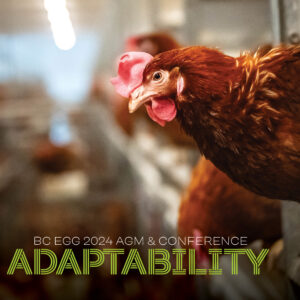Think Eggs
Eggnog Christmas Countdown
This year we’re celebrating the season with a collection of recipes showcasing our favourite holiday beverage: eggnog! We’ve got over…
With all the rhetoric our Trans-Pacific Partnership partners have engaged in, it’s no surprise that there are calls for supply management’s abolition (“Milk, eggs and our future,” Editorial, July 3), despite its 40-year track record of providing fair returns for farmers and fresh, high-quality food raised in Canada for consumers at competitive prices.
But the system should be maintained.
Under supply management, farmers work together to match what they grow with what consumers need and want. The stability provided by the system allows farmers to earn fair returns from the marketplace, without having to rely on subsidies or taxpayer dollars, as they do in the U.S. and Europe. It also means that the dairy, poultry and eggs you find at the grocery store are, by and large, Canadian — wherever you go you’ll be able to find food raised locally, by Canadian farmers, and to Canada’s world-class health and safety standards.
And there’s where the problem arises: while the system works very well for Canada and Canadians, our trade partners want access to our markets. And right now, they’re trying to get it through the Trans-Pacific Partnership.
As its proponents would have it, the Trans-Pacific Partnership is the biggest game in town: 12 countries, 40 per cent of the world’s economy, one consistent set of rules. And, they argue, in order for Canada to participate, we must give in to international pressure and sacrifice certain commodities in these trade negotiations.
Yet why would we want our prime minister to go to the negotiation table and not want the best for everyone? Why would we bet against one group for the benefit of another?
Thankfully, Prime Minister Stephen Harper has consistently maintained that he will only sign a deal that is in Canada’s best interests, and that includes supply-managed and non-supply-managed sectors — like Canada has been able to do in each of the 12 trade agreements we have signed, including the high-stakes NAFTA (North America) and CETA (Europe) deals.
Many members of Parliament — including party leaders — have spoken up to support supply management, urging the government to protect our Made-in-Canada system throughout the negotiation process.
I submit that the best possible deal for Canada is to build on our historic strengths, which include our supply managed sectors of poultry, dairy and eggs. We should not give up those areas of strength because of demands by Americans or New Zealanders to flood our market with their eggs or milk.
Canada’s system of supply management makes so much sense for both consumers and farmers. It is cost effective, while enforcing a consistent set of rules to provide consumers peace of mind and promote the highest standards for food safety and farming practices.
The system also provides a bedrock of economic stability for much of rural Canada — family farms and small towns alike. Canada’s dairy, poultry and egg sectors collectively contribute $28 billion to Canada’s GDP and support more than 300,000 jobs from coast to coast. The stability afforded by supply management allows many farmers to diversify into export sectors like canola or pulses. And banks are more willing to lend to supply-managed farmers, allowing farmers access to capital that they can reinvest in their operations and in their communities with confidence.
It’s a system that has worked well for both farmers and consumers for over 40 years. Let’s not throw it away on a gamble.
We deserve to keep it.
Bruce Muirhead is a professor in the department of history and associate vice president, external research, at the University of Waterloo. At Waterloo, he holds the Egg Farmers of Canada Chair in Public Policy.

This year we’re celebrating the season with a collection of recipes showcasing our favourite holiday beverage: eggnog! We’ve got over…

BC Egg is hosting our 2024 AGM and Conference at the Fairmont Hotel Vancouver. Will you be joining us?

Celebrate World Egg Day with eggs ANY time!